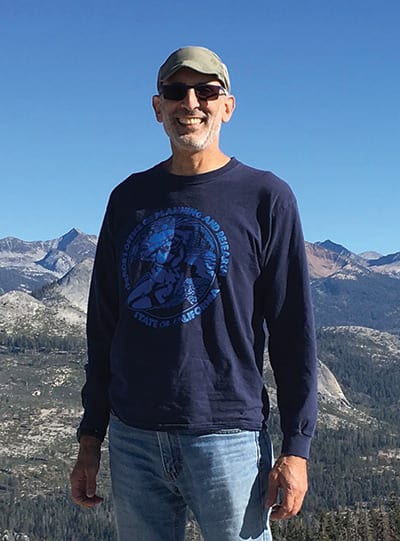
Ken Alex has been called California’s most influential environmental lawyer, a visionary, and former governor Jerry Brown’s climate whisperer. He is now joining Berkeley Law’s Center for Law, Energy & the Environment (CLEE) to spearhead Project Climate—a new initiative driven to transform top research into policy more quickly.
Under Brown, Alex chaired the state’s Strategic Growth Council, which links economic growth with climate sustainability, and directed the Governor’s Office of Planning and Research. He has traveled worldwide to forge alliances and environmental agreements for California, advancing reform on issues from pollution and flame-retardant home products to solar energy and greenhouse gas emissions.
Alex goes way back with CLEE, serving on its first advisory board and working for its first executive director (Richard Frank) at the Attorney General’s Office.
“Ken has been incredibly influential developing leading efforts to combat climate change and scale renewable energy, not just in California but through example around the world,” says Jordan Diamond ’08, CLEE’s executive director. “He has a remarkable ability to devise creative, pragmatic approaches to tackling seemingly intractable challenges—and then to see them to completion.”
Recently, Alex discussed his new endeavor with Transcript Managing Editor Andrew Cohen.
Andrew Cohen: What are your goals for Project Climate, and why house it at CLEE?
Ken Alex: CLEE has convened expert panels and produced reports on climate-related issues of keen importance to my work, so when I conceived of Project Climate it seemed like a great fit. The central idea is to take the most promising climate solutions and move them more quickly and efficiently to policy and scale. Right now, we’re better at identifying solutions than actually implementing them.
What are the biggest misconceptions about climate change and reform?
Two are connected: First, a belief that climate change is happening slowly, so we have time to respond over decades; and, second, technology will handle the problem. Unfortunately, the rate of climate change seems to be accelerating, and our window for action is narrowing. We may have already passed some important and irreversible points, such as the ice melt in Greenland. We’re not taking sufficient action at sufficient scale to meet the challenge.
How can research be more efficiently translated into action?
First, consult experts and advisors to determine promising solutions, including climate-smart agriculture, carbon sequestration in concrete, and various approaches to electrical storage. Second, establish efficacy through pilot projects and careful research. Third, address the solutions’ hurdles and barriers. For example, regulatory requirements for concrete will vary greatly from those for adding compost to ranch lands. Fourth, scale up as rapidly as possible, working with other countries, states, and cities. None of this is easy, but it’s all essential.
What achievements are you most proud of during your work with Governor Brown?
I was the primary architect of the Under2 Coalition, an organization of 220 sub-national governments (representing 43 percent of world GDP and 1.3 billion people) that are most committed to action on climate change, and will likely be key partners in implementing the most impactful solutions.
Closer to home, I helped start Civic-Spark, three AmeriCorp programs with the Local Government Commission that send recent college grads into local communities to work on resilience issues, including climate, water, and broadband.
Finally, the Transformative Climate Communities program grants significant funding to selected disadvantaged communities which choose their own goals, strategies, and projects, in conjunction with the Strategic Growth Council and local partners, to reduce greenhouse gas emissions and local pollution systemically. Five communities are funded, with more hopefully on the way.
What’s our most daunting climate challenge?
Political will and scale. We need urgency and a mindset of collective action, like World War II, our 1960s mission to the moon, or our efforts to cure HIV/AIDS. Political inaction on climate change must have consequences for those who fail to act. We’re not yet perceiving the crisis nature of the challenge, and aren’t acting with sufficient alacrity. If we find and engender the political will, action will follow. China, India, the U.S., and Europe can provide scale, but only if we work together. By moving solutions to policy and scale more rapidly, Project Climate can be part of building political will.